You’ve probably had a flat tire once or twice in the past. Maybe you had a jack, or maybe you didn’t at all, but the incident would have helped you realize how the right tool can make your life a lot easier.
Regardless of why you need to lift your car, there are two major options for lifting vehicles: trolley jacks and floor jacks. Both lifting tools have different features and benefits that can significantly affect how you work.
This article will weigh in on the agelong debate on trolley jacks vs floor jacks, focusing on their differences, benefits, and how to figure out which type best suits your needs.
Table of contents
Understanding Trolley Jacks and Floor Jacks
Floor jacks and trolley jacks have similar uses: lifting vehicles. However, these jacks have different features, functionalities, and ideal use cases. In this section, we will help you understand their uses and which one you really need.
What is a Trolley Jack?
A trolley jack is a hydraulic lifting device with wheels that can be easily moved and positioned under a vehicle. This kind of jack has a long handle that operates the hydraulic system to raise and lower the vehicle smoothly. It also has a compact and portable design that makes it easy to use for quick lifting tasks.
Trolley jacks are best used for light to medium-duty tasks. They’re the quick fix for changing tires and performing routine maintenance on your vehicle. Trolley jacks are most useful in home garages and those roadside emergencies that leave you sweaty and a little frustrated. If you choose a trolley Jack, you’ll get access to:
- Mobility, since they’re easily maneuvered under the vehicle.
- Hydraulic efficiency, because you only need minimal effort to lift the vehicle.
- A compact design which means you can easily store the jack in your vehicle.
What is a Floor Jack?
Floor jacks are bigger than trolley jacks. They have a wider and more sturdy base that enhances their stability. Like trolleys, they use a hydraulic lifting mechanism, but floor jacks are bigger and stronger, which makes them more suitable for lifting heavier vehicles with ease. They have longer handles for better leverage and control during the lifting process.
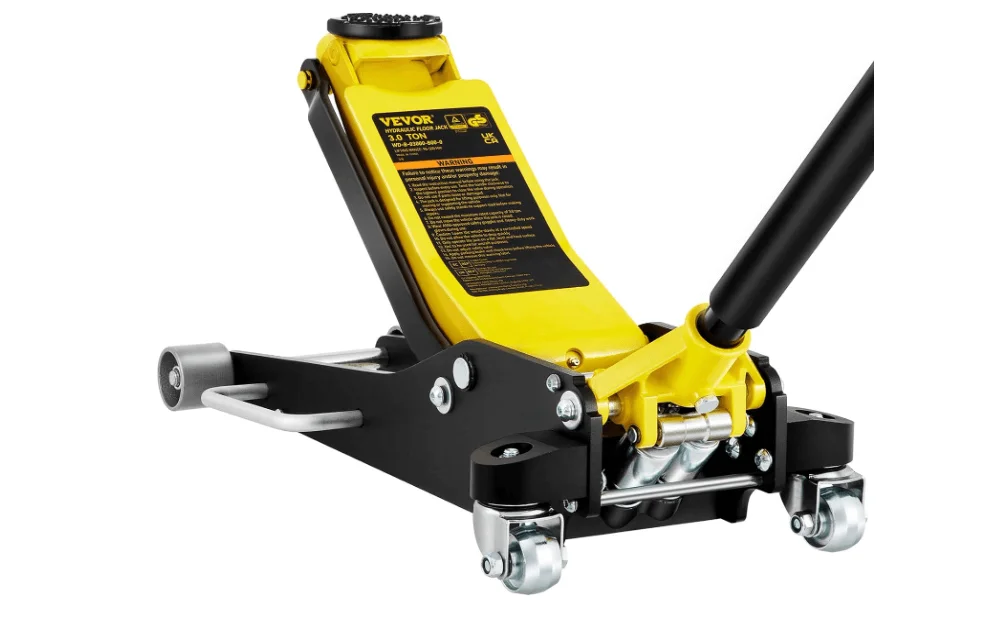
Floor jacks are designed for heavy-duty tasks, and they’re commonly used by professional auto repair shops or people with larger vehicles, like trucks and SUVs. If you fall into this category, floor jacks will give you:
- Higher lifting capacity, since they are built to be more effective than normal jacks
- Durability, even with frequent use and heavy loads.
- Better stability, thanks to its wider base that provides a more stable platform.
The trolley vs floor jack debate is a popular one, but we believe your choice should depend on your vehicle maintenance needs. A trolley jack is portable and easy to use, and floor jacks are more stable and durable.
Key Differences Between Trolley Jacks and Floor Jacks
Besides their function, each jack type has specific characteristics that make it more suitable for particular tasks and vehicles. We discuss some of these differences below:
Construction and Size
Trolley jacks are usually made from lighter materials like aluminum, which is why they’re more portable. Some trolley jacks also use steel components for added strength without compromising too much on weight. Floor jacks, on the other hand, are made of steel. Steel provides the necessary durability and strength to handle heavier loads, of course, making them weightier than trolley jacks.
When comparing floor jack vs trolley jack, size and bulkiness are crucial. Trolley jacks are generally more compact and easier to store. You can put them in your home garages and emergency roadside kits.
They’re smaller and have wheels at their base, which means you can whip them out at any time. Floor jacks are bulkier and heavier. They’re most used in permanent settings and not for moving around. Although big, their size comes in handy if you’re handling a bigger vehicle.
Weight Capacity
Trolley jacks can comfortably handle between 500 pounds to 3 tons of weight. This makes them better suited for lighter vehicles and routine maintenance tasks. They’re perfect for lifting cars, motorcycles, and ATVs.
Floor jacks have a much higher weight capacity—they can safely elevate loads with weight capacities between 1 to 12 tons. This is why they’re the better option for larger vehicles, like commercial vehicles and trucks.
Lift Range
Trolley jacks have a lift range between 10 to 15 inches. This range is sufficient for most standard vehicle maintenance tasks, including tire changes. Floor jacks can go as high as 21 inches. Their lift range also contributes to their use in big vehicles, like high-clearance trucks. Floor jacks can lift vehicles higher and give you better access to underbody work and repairs.
Ease of Use and Mobility
Both jacks are easy and straightforward to use. This section compare both models based on their ease of use and mobility:
Trolley Jack Mobility
Trolley jacks have swivel wheels that you can maneuver in all directions. It means you can position the jack under the vehicle without much effort. The swivel wheels also make it easy to navigate around obstacles in a garage—one of the primary advantages of its lightweight and compact design. You can store them in small spaces, like your car trunk.
Floor Jack Mobility
Floor Jacks offer movement in only two directions, front and backward, due to their two larger wheels at the back and two smaller, fixed wheels at the front. These wheels give them a stable and controlled movement, but you can’t maneuver them as well as you would a trolley jack. They’re heavier than trolley jacks because they support higher weight capacities. Although this bulkiness reduces their portability and fluidity, it increases stability.
Safety Considerations
Safety is an important consideration when choosing jacks. Both jacks have distinct differences and uses, and it’s important to stick to their capacity. We discuss the level of the safety features available in each task.
Trolley Jack Safety Features
Trolley jacks are designed for quick and light tasks, but their smaller size makes them less stable. While their swivel wheels make it easy to direct them in any way you like, they can also make the jacks more prone to tipping if not used on a flat surface.
You must ensure the jack is properly positioned and your vehicle is securely choked to prevent movement. Trolley jacks have a lower profile that can limit their lifting range but also restrict them to lighter vehicles. Trolley jacks are easy to use, but you must always adhere to safety protocols when using a trolley jack.
For instance, always support the vehicles with jack stands. Trolley jacks are not meant to hold the weight of vehicles for long periods — don’t get underneath the vehicle without the jack stands in place.
Floor Jack Safety Features
Floor jacks are built for high stability and heavy lifting. Their wide, sturdy base reduces the risk of tipping, even when you’re lifting heavier vehicles. The lifting arm of a floor jack also provides a higher motion range, giving it higher lifting capabilities.
When comparing trolley jack vs floor jack, the latter is your best bet in terms of safety when in prolonged use. Their stability and higher weight capacity make them safe to use for extended periods, unlike trolley jacks.
Besides this, floor jacks usually have safety features, like overload valves to prevent overloading. Regardless of their capacity, don’t use jacks without adding jack stands for additional support.
Choosing the Right Jack for Your Needs
As we mentioned, what you choose between a floor jack vs a trolley jack depends on your specific needs.
Factors to Consider
Here are factors to consider before choosing a jack:
1. Type of Vehicle
The type of vehicle you work on is a primary consideration. A trolley jack is sufficient for low-profile cars and lighter vehicles, but bigger trucks and heavy-duty vehicles need a floor jack due to their higher weight capacity.
2. Garage Space
You should also consider the space you have in your garage. Trolley jacks are more compact and easier to store and are a wise choice unless you have a bigger garage. Floor jacks need more space and are suitable for larger garages and repair shops.
3. Frequency of Use
Consider how often you plan to use the jack. If you only need it occasionally, you should consider getting a trolley jack for its portability and ease of use. If you regularly perform maintenance or extensive repairs, especially on heavier vehicles, you need a floor jack for its durability and stability.
4. Specific Tasks
The tasks you intend to perform are also important. Trolley jacks are excellent for quick jobs like tire changes, while a floor jack can handle tasks that require more extensive undercarriage access or prolonged lifting.
Pros and Cons
Using both jack types has specific advantages and disadvantages. This section covers the major benefits and drawbacks of using each type of jack.
Trolley Jack
Pros
- Portability
- Compact design
- Easy usage
Cons
- Stability issues
- Limited capacity
- Lower lift range
Floor Jack
Pros
- Better stability
- Higher weight capacity
- Greater lift range
Cons
- It may be too heavy and bulky
- Less portable
- More expensive than trolley jacks
Why VEVOR Hydraulic Floor Jack Stands Out
Now that you know the differences between trolley jacks and floor jacks, you probably know the option to go for when you want to make a purchase. If you think your project requires that you buy floor jacks, we recommend that you go for the VEVOR Electric Car Jack. We talk more about the VEVOR hydraulic floor jack below.
Product Overview
The VEVOR Hydraulic Floor Jack is an electric jack that can reach a maximum height of 17.7 inches in just 2 minutes. It has a lifting capacity of 11,023 pounds and can easily lift SUVs, trucks, and Sedans.

One of the best selling points of the VEVOR electric jack is that it is portable and can also handle heavy weight. You can charge it in more than one way: you can use a 12v cigarette lighter or your car battery. The jack has a 13ft power cord that you can place by the front or rear tire without worrying.
The car jack also has a tire inflator pump installed in the hydraulic electric jack, so you don’t have to worry about broken tires in the middle of nowhere. We particularly love its low-profile design, which lets you fit it under vehicles with low clearance while still providing a high maximum lift range.
Recommended For Your Project
Performance and Reliability
We went through over 120 reviews and user feedback on this product, and we have to say we are truly impressed by what we saw. Most of the current and past users commented that the VEVOR hydraulic jack was just as advertised. We have highlighted some of these feedbacks below.
Martin, an impressed user, left a five-star review saying:
“Great value for price.
As advertised. It did what it was supposed to and did it well. I used it to change the oil on my Volt and I was able to use the electric wrench to loosen the nuts, used the jack to lift the car. Put stand up and lowered the car and moved jack out of the way. Changed the oil, filter then lifted the car again, took out the stand, tightened the lug nuts and lowered it. Easy peasy. It definitely raised the car up high enough to put the stand in, which was always a pain with my other, 4-wheeled jack. It was also much faster to raise and lower.”
VEVOR’S smooth hydraulic lifting mechanism and stable base make it easy to lift your car. Its sturdiness also gives users the confidence they need to repair their car.
Comparison with Other Brands
Compared to other brands, VEVOR Electric Car Jack stands out for its performance and cost-effectiveness. While other brands may offer similar features, VEVOR’s tire inflator pump and low-profile design give it an edge when it comes to efficiency and versatility.
Value for Money
VEVOR, true to its brand logo “Tough Tools, Half Prices” offers high-end, quality tools at affordable prices. Their car jack is competitively priced, which means both professionals and DIY enthusiasts can access it. The performance it delivers, especially the quick lift capability (17.7 inches in 2 minutes!) and high weight capacity, ensures that users get more than what they pay for.
The VEVOR hydraulic car jack is also built to last. It boasts a sturdy construction that can withstand frequent use without significant wear and tear, so you don’t need to worry about replacing it anytime soon.
Conclusion
Choosing between a trolley jack and a floor jack depends on various factors. You need to consider the specific tasks you need a jack for, your type of vehicle, and how frequently you’ll be using it.
Regardless of your need, the VEVOR hydraulic floor jack ticks all the boxes. Going by users’ feedback and review, this jack offers consistently excellent performances and offers great versatility. It is built to be sturdy, and reliable, and it also offers excellent value for money. You should visit the VEVOR website to check out this jack and other appliances from VEVOR for your auto repair needs.

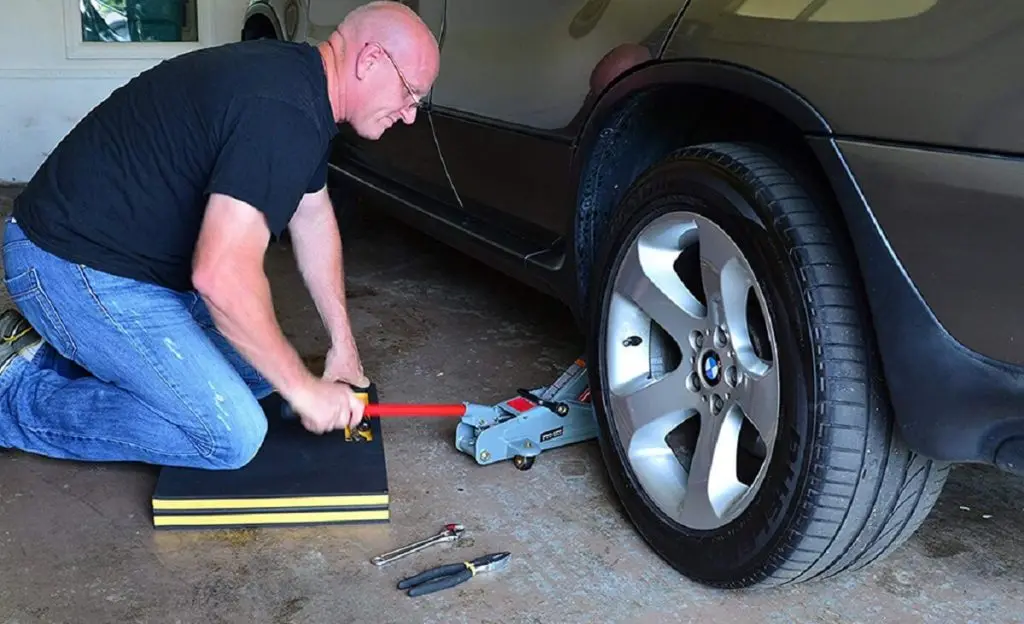

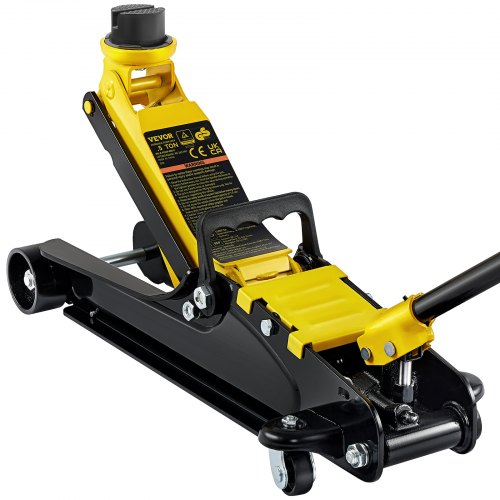

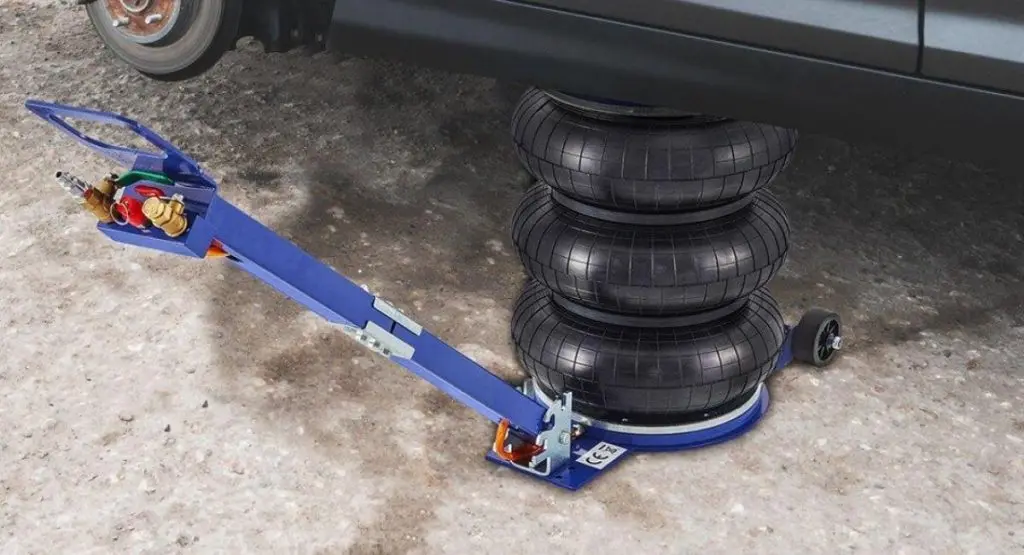
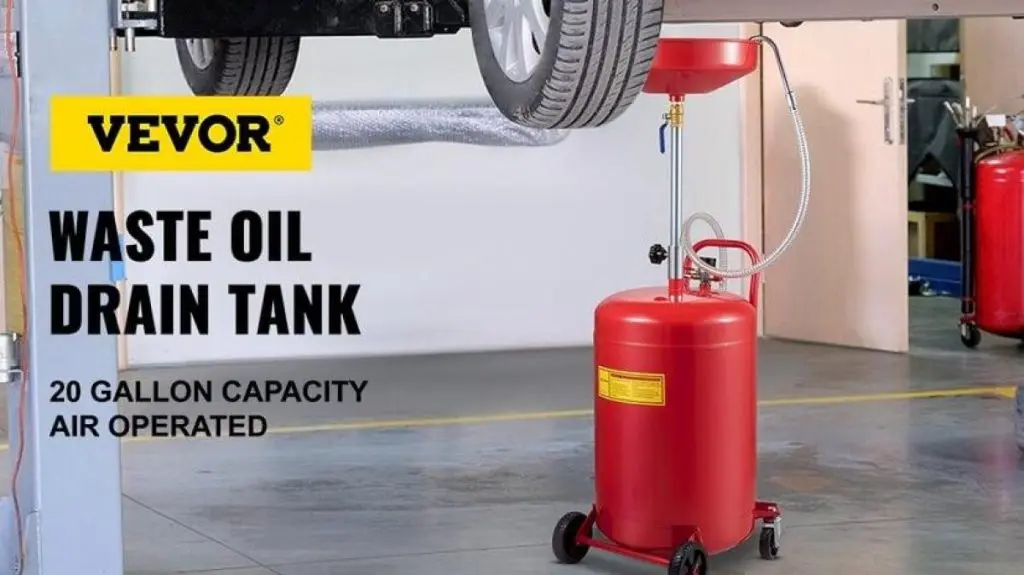
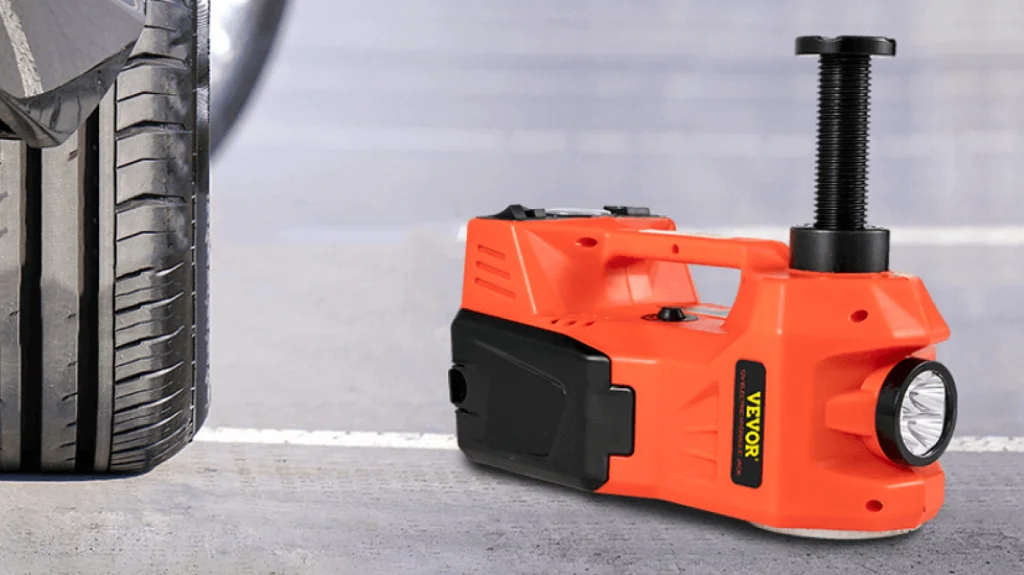
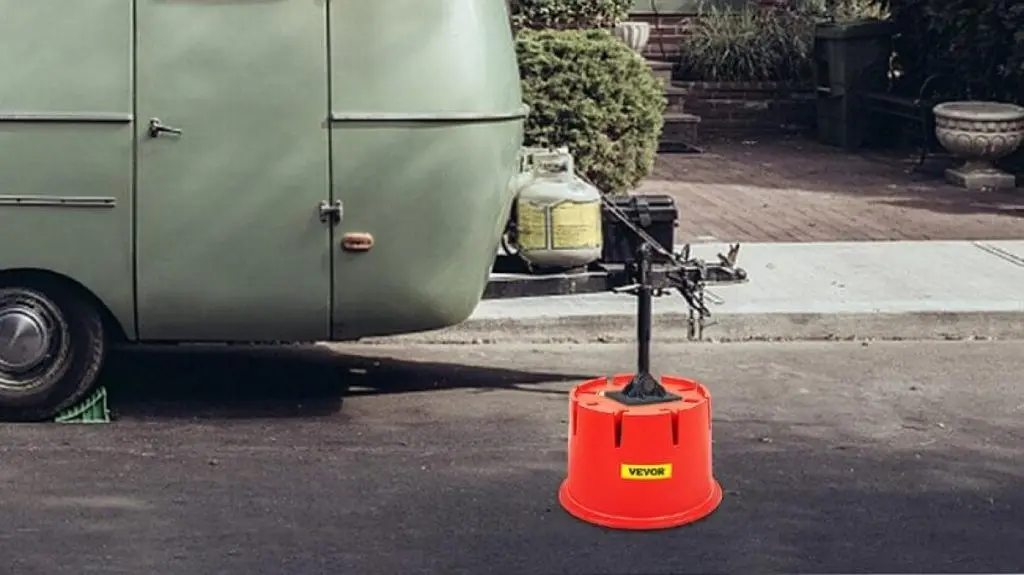
 Arabic
Arabic Danish
Danish Dutch
Dutch English
English Finnish
Finnish French
French German
German Hungarian
Hungarian Italian
Italian Norwegian
Norwegian Portuguese
Portuguese Romanian
Romanian Russian
Russian Slovak
Slovak Spanish
Spanish Swedish
Swedish